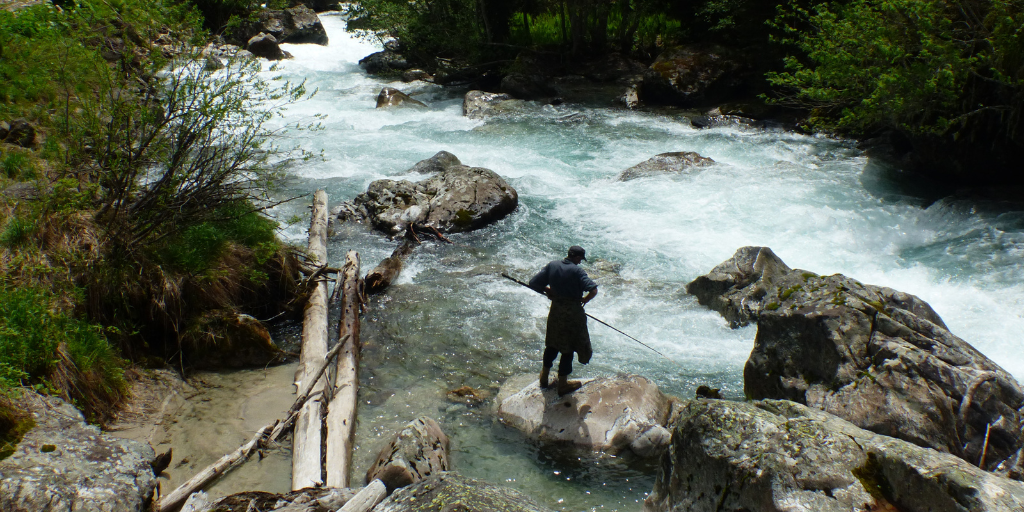A new report by the Business and Human Rights Resource Centre once again confirms the concerns of civil society organisations and local communities from Central Asia and the Caucasus about the destructive environmental and social impacts and severe human rights violations caused by unsustainable hydropower development.
The research
studied 32 hydropower plants linked with 265 alleged human rights issues in Armenia, Georgia, Kyrgyzstan and Tajikistan.
Seventeen projects – more than half of the studied plants – have been funded by international financial institutions. Hydropower has received support from these institutions in the past decade because it has been promoted as an alternative to fossil fuels. Yet this support has been in the absence of human rights standards and environmental safeguards. The report demonstrates that the international financial institutions have disregarded the UN Special Rapporteurs’ recommendations and the instruments underlined in the United Nations’ Guiding Principles on Business and Human Rights.
The report draws attention to the negative effects hydropower projects have had on communities, including land and water grabbing, declining water quality and quantity in rivers, disruptions to ecosystems, biodiversity loss and deforestation. All of this leads to socio-economic harm for communities and creates food security concerns, as communities lose access to land, and face difficulties accessing water.
Due diligence as a ‘check box’ exercise
Most of the international financial institutions mentioned in the report (the Asian Development Bank, European Investment Bank (EIB), European Bank for Reconstruction and Development (EBRD), Germany’s KfW and others) lack solid environmental safeguards and effective human rights and environmental due diligence for every project. As a result, projects fail to protect human rights and the environment, as well as to provide adequate remedy.
In the case of the Nenskra hydropower plant, the UN Working Group on Business and Human Rights raised concerns in April 2019 that ‘despite the additional measures taken to comply with the standards of international financial institutions… there was a perception that consultations with communities were conducted as a check box exercise’. These concerns were later confirmed.
After two years of investigation, both the EIB’s and EBRD’s independent recourse mechanisms confirmed that the Nenskra dam in Georgia, worth EUR 1 billion, was non-compliant with banks’ requirements in the following areas of human rights and environmental protection:
- indigenous people’s rights,
- the protection of cultural heritage,
- gender issues,
- assessment and management of environmental and social impacts,
- information disclosure, and
- engagement of local communities and other stakeholders.
The lack of stakeholder engagement, including with scientists and affected communities, often leads to defamation campaigns against human rights and environmental defenders and professionals, who provide their opinions about the risks of projects.
Some governments (Tajikistan, Georgia) even use reprisals, including police forces, against the affected communities and activists.
Environmental damage and human rights violations: not enough to discourage investments in harmful hydropower?
In light of this, the news that the European Commission has asked the EIB to become ‘the largest investor’ in the Rogun hydropower project in Tajikistan raises numerous concerns.
Construction of the USD 8 billion Rogun hydropower plant started in 2016. The project has been largely funded by Tajik government bonds and private loans coming from ‘a campaign of forced share-buying [in the Rogun project] among citizens in 2009-2010′. According to a study on the Rogun dam, ‘the majority of state employees, i.e. teachers, nurses, but also students were pressured to buy significant shares, sometimes to a value greater than an annual salary… The scheme caused such widespread debt among the population, that the World Bank warned it was significantly damaging the economy.’
The Rogun construction involved an involuntary resettlement of 42,000 people.
For many resettled families, the standard of living deteriorated as a result of land loss, lack of employment and poor access to essential services in new settlements. Local experts are also concerned about the ‘illegal trafficking’ of materials intended for the project and the alleged misappropriation of funds. According to the report by Business and Human Rights Centre, a crack in the dam was reported in 2019, which local experts attributed to the use of low-quality cement, steel and other building materials.
For these reasons, it is surprising to learn that an unnamed EU official “said a key reason for the EU to become a top investor in the hydropower dam was to make Tajikistan and its neighbours independent from Russian energy.’
The EU has vast tools and funds to support sustainable renewables investments in Tajikistan and all over Central Asia, rather than rush its investments into an environmentally unsustainable project that exacerbates human rights violations. Will the argument of gaining independence from Russian energy now excuse human rights violations and damage to the environment?
Never miss an update
We expose the risks of international public finance and bring critical updates from the ground – straight to your inbox.
Institution: EIB | EBRD | ADB
Theme: Hydropower
Location: Tajikistan | Georgia | Armenia | Kyrgystan
Project: Free-flowing rivers in Central Asia | Hydropower development in Georgia | Nenskra hydropower plant, Georgia
Tags: ADB | hydropower

